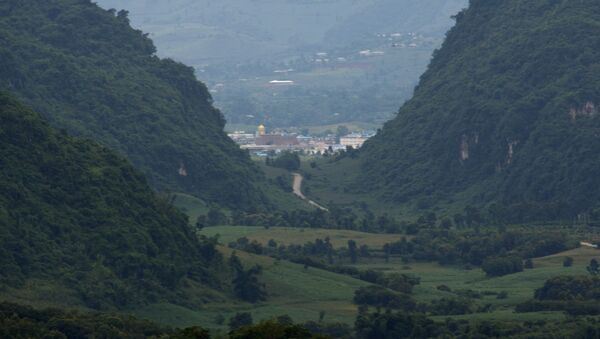In recent years, China has seen an increased problem with cross-border crimes, particularly with drug trafficking in the regions of Xinjiang and Yunnan.
"Given that cross-border crimes are frequent, it no longer works to depend on our soldiers to patrol and catch the bad guys on foot," said Mao Weichen of the Southwestern Institute of Technology and Physics in Chengdu, according to the Economic Times.
"Therefore the border defense authorities are turning their eyes on high-tech apparatus."
That tech includes an integrated frontier monitoring system which uses both surveillance drones and sophisticated radar to detect activity along the border.
"Our system has been adopted by border defense units in Xinjiang, Tibet, Yunnan, and many other regions to curb illegal border crossings and drug trafficking," Mao said.
The system works as a massive surveillance network, which notifies Chinese soldiers on the ground at the first sign of unauthorized border movement.
"Compared with traditional border monitoring networks that mainly depend on video surveillance, our system has a wider coverage and more deterrence thanks to the use of drones and acoustic weapons," Mao said.
Beijing is also concerned with militants of the East Turkistan Islamic Movement, an affiliate of al-Qaeda. The government is concerned about the terrorist group infiltrating China through the borders along Pakistan and Afghanistan.
The group has already launched a number of attacks in Xinjiang, and Chinese Vice President Li Yuanchao is also expected to discuss security concerns with Indian leaders when he visits next month.
While the monitoring system will first be deployed along China’s land borders, it can also be equipped with a sea-scanning radar which could allow it to be deployed in coastal regions in the future.
While Beijing cracks down on the unregulated border crossings, it’s also increasing the number of legitimate checkpoints. That move is meant to increase the flow of essential goods to landlocked Nepal.
"[The two sides] agreed to operate the two major trading points between Nepal and Tibet in full swing by making necessary preparations" and to "open seven other trading points between Nepal and Tibet," reads a statement issued from Nepalese officials, according to the Economic Times.





